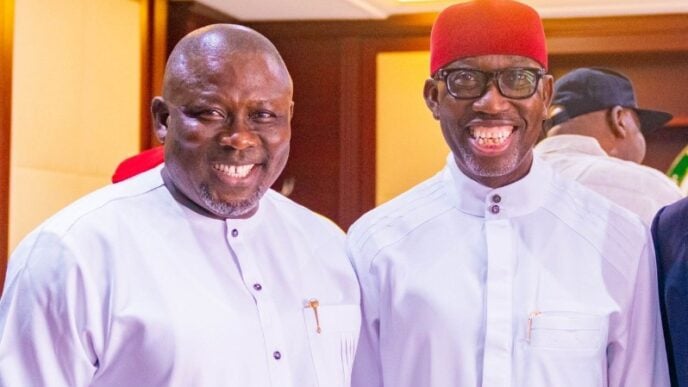While sentencing former US business magnate, Bernard Madoff to 150 years’ imprisonment for his massive Ponzi scheme which cost his clients billions of dollars, the judge made a striking observation about Madoff’s leadership and lifestyle: “In terms of mitigating factors in a white-collar fraud case such as this, I would expect to see letters from family, friends and colleagues. But not a single letter has been submitted attesting to Mr. Madoff’s good deeds or good character or civic or charitable activities. The absence of such support is telling”.
History is however replete with leaders who astonished the world with their brilliance but ultimately imploded because they lacked character, moral rectitude and shunned ethical standards. From the collapse of corporate giants due to fraudulent accounting practices, to political downfalls stained by scandals, one truth emerges again and again: skills, affluence and brilliance may get you to the top, but only character, good moral values and strict adherence to ethical standards will keep you there.
Most leaders especially in Africa prioritize reputation over integrity, wealth over legitimacy and results over ethics. They build empires on sand but sooner than later, the waves of scrutiny, pressure, or crisis will reveal the cracks in their foundation.
It is however, expedient on leaders to come to terms with the fact that without character and strong moral and ethical standards, leadership and all its potential achievements are in danger of cancellation because every leader is only as safe and secure as his character, and adherence to strong moral and ethical standards.
Advertisement
The consequences of a failed leadership are enormous that it could be better imagined than becomes a reality. For instance, at the height of his career, Jeffrey Skilling, CEO of Enron, was lauded as a genius. Enron was once ranked America’s most innovative company, and its stock soared on Wall Street. But behind the polished façade lay a web of unethical accounting practices, deception, and greed.
When the truth was unraveled in 2001, it wasn’t just Skilling who fell, thousands of employees lost their jobs and life savings, and investors were defrauded of billions of dollars.
The former Enron chief wasn’t incompetent, he was brilliant. But brilliance without ethics, morality and character became a destructive force. His leadership prioritized profits and appearance over principles, leading to one of the largest corporate bankruptcies in history. This is a reminder that when ethics are sacrificed at the altar of success, failure is inevitable and catastrophic.
Advertisement
In another instance, the story of Elizabeth Holmes, founder of Theranos, reflects the peril of leadership built on deception. Holmes captivated Silicon Valley with her vision of revolutionizing blood testing technology. She raised nearly a billion dollars in funding and was hailed as the next Steve Jobs. Yet beneath the black turtleneck and magnetic pitch was a product that didn’t work.
Holmes’s unwillingness to be transparent about her technology’s failures, her misleading of investors, and her manipulation of data exemplify a leader prioritizing ambition over ethics.
In 2022, she was convicted of fraud. Her fall sent a chilling message to the startup world that charisma and vision cannot compensate for a lack of integrity.
The trail of history is littered with many would-be great men and women who harnessed the reins of power in various fields: political, social, economic, corporate, sports, spiritual, and more. They wielded great influence and or control over the lives of others. Many felt the weight of material wealth and fame only to have it all disintegrate and blown away like dust in the wind because of their tragic deficiencies of character.
Advertisement
Almost every country on earth is presently challenged by an absence of resolute leadership as it struggles under precarious times.
Politically, economically, and socially, our nations are experiencing turmoil and moral decay, characterized by crime, religious conflicts, economic uncertainties, the unequal distribution of resources, political corruption, civil unrest, the disintegration of the family, cybercrime, poverty, disease, famine, sexual abuse, greed, racial clashes, ethnic cleansing, global terrorism, and war.
More endemic of this leadership defect happens in Africa where in the dynamic drama of contemporary leadership playing on the continent stage today, there are many “characters” who lack character.
For instance, the trajectory of the current Nigerian president, President Bola Ahmed Tinubu’s political career offers a compelling case study on the critical importance of character, ethics, and morality in leadership.
Advertisement
There are many character deficient, moral and ethical issues surrounding the President and most of the current leaders in his government, and this points directly to the abysmal performance of his administration till date.
During the 2023 presidential elections, questions arose regarding the authenticity of Tinubu’s academic qualifications. Opposition candidate Atiku Abubakar claimed that Tinubu submitted a forged diploma from Chicago State University to Nigeria’s electoral commission.
Although the Supreme Court dismissed the case, the controversy cast a shadow over Tinubu’s credibility and the moral integrity of the electoral process. Till date, the President is perhaps the only Nigerian that attended a school and cannot unequivocally point to a classmate of his.
Advertisement
Also in 1993, Bola Tinubu faced serious allegations when the U.S. government froze his assets, suspecting that his American bank accounts contained proceeds from heroin trafficking. Tinubu settled the case by forfeiting approximately $460,000, though he did not admit guilt. This settlement raised concerns about his ethical standing and the sources of his wealth.
The controversy surrounding President Tinubu’s educational credentials and source of wealth are not an isolated incident but rather symptomatic of deeper problems within Nigerian politics. It highlights the prevalence of false credentials and spurious wealth among politicians, where embellishments and dishonesty about educational qualifications or source of wealth are not uncommon.
Advertisement
On the hand, Nigeria has not had it right since the return of democratic governance in 1999, just like most of the other nations of Africa due to mostly character deficiency and noncompliance to ethical and moral standards.
We have seen the worst of this character deficiency since the advent of the “change” mantra by the ruling All Progressive Congress (APC), a decade ago. Indeed, they got it, but at what cost? The past 10 years have been a brutal awakening, a tragic realization that we have been scammed by the ruling elites.
Nigerians were sold the grand illusion that a new administration, led by the All Progressives Congress (APC), would usher in an era of prosperity, security, and national rebirth. The promise was alluring: zero tolerance for corruption, security for all, and a stronger economy.
Advertisement
Instead, Nigerians got the most devastating era of governance in the country’s history.
Today, Nigeria is a shadow of its former self. The economy is in tatters, the naira is gasping for breath like a drowning man, and the cost of living has skyrocketed to levels that make basic survival an extreme activity. Insecurity has taken on monstrous proportions, with terrorists, kidnappers, and bandits having a field day. Hunger, once an unfortunate reality for a few, is now a national epidemic.
These stories-and countless others-reveal a pattern: leaders who neglect character, ethics, and morality may achieve temporary success, but they build on shaky ground. Their influence becomes brittle, their legacy tainted, their achievements overshadowed by scandal.
Leadership without ethics is like a ship without a rudder. It may sail swiftly, but it cannot navigate safely. Character is the inward compass that keeps a leader grounded when tempted by shortcuts or pressured for results. Ethics are the rails that keep leadership on course, preventing derailment. Morality is the lens that focuses leadership on what is right, not merely what is expedient.
True leadership doesn’t only ask, “What can I achieve?” but also, “At what cost? And for whose benefit?” It calls for decisions guided by conscience, accountability, and a commitment to the common good.
On the contrary, not all leaders fail the test of ethics and morality. For instance, Nelson Mandela serves as a powerful counterexample. After 27 years of unjust imprisonment, he emerged not bitter, but forgiving. As South Africa’s first Black president, he prioritized reconciliation over revenge, building bridges between bitterly divided communities. His leadership wasn’t marked by a thirst for power, but by moral courage, humility, and integrity.
Mandela proved that true leadership is not about domination but transformation; not about self-interest but about serving others. His character elevated his leadership, leaving a legacy that endures long after his tenure ended.
In the end, leadership is not merely a position; it’s a trust. Those who lead are entrusted with influence over people’s lives, livelihoods, and futures. And that trust cannot survive without character, ethics, and morality.
For every leader, whether in business, politics, ministry, or community, there comes a moment of choice: Will I prioritize what is right, even at a costs? Or will I sacrifice integrity for immediate gain? The answer to that question doesn’t just determine a leader’s success; it defines their legacy.
And in the long bend of history, it is not brilliance, wealth, or fame that stands the test of time—but character, ethics, and morality.
Kalu Okoronkwo, a leadership and good governance advocate writes from Lagos and can be reached via [email protected]
Views expressed by contributors are strictly personal and not of TheCable.










